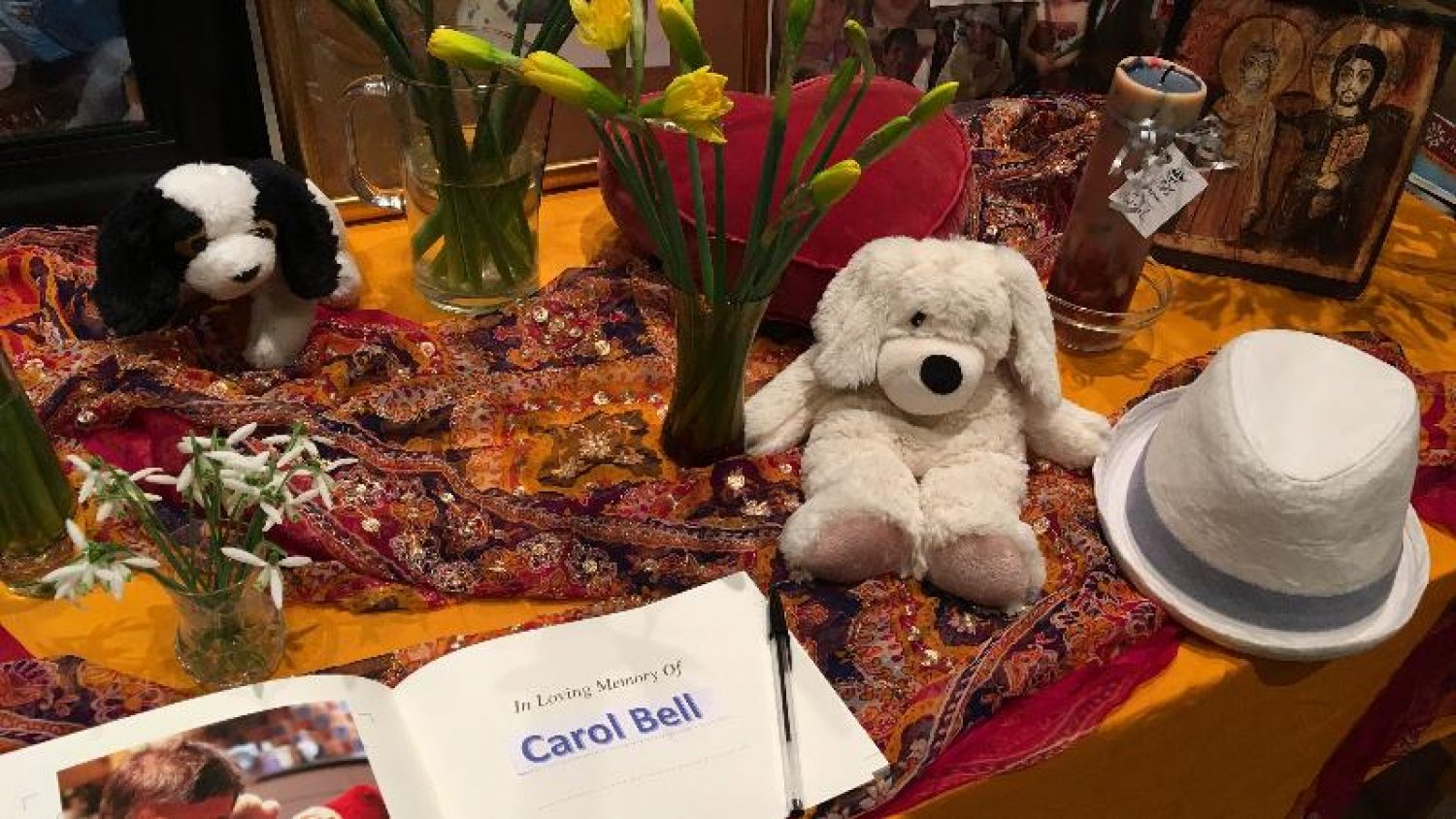Three minute read
Irene Tuffrey-Wijne is Professor of Intellectual Disability and Palliative Care at Kingston University & St George’s, University of London. Richard Keagan-Bull is a Research Assistant at Kingston University, as well as being Co-chair for Lambeth Learning Disability Assembly.
They are both members of L’Arche. This is a global movement of people with and without learning disabilities, many of whom live together in communities.
This blog explores how funeral rituals at L’Arche can show us how to make funerals more accessible for people with learning disabilities — and for everyone.
Gathering together when someone dies
“In a L’Arche community, people share their everyday lives. Therefore, when someone in a L’Arche community dies, this is also a shared event,” explains Irene.
When someone dies, the first thing that the community does is to gather together. According to Irene and Richard, this is “the chance to tell each other, and ourselves, that our friend has died. We can be shocked and upset together”.
Every death, however expected, leaves people feeling unable to believe what has happened. A sense of shock which is shared by everyone who knew and loved the person who has died.
Usually, at this gathering, people say prayers and sing songs, especially the favourites of the person who has died, and simply sit together.
Not everyone agrees with this approach. They have found that some nursing homes resist even telling people with learning disabilities that someone has died for fear of upsetting them too much.
However, as we also find at Poppy’s, enabling people to express their feelings of grief and loss helps them to come to terms with those feelings. This is just as true for people with learning disabilities as for those without.
Starting to understand what death means
At L’Arche, within the person’s home or in their room, an area is sometimes set aside where community members and friends can go to remember them. They can look at pictures of the person who has died, as well as some of their clothes or favourite things.
Irene explains how important this is for people with learning disabilities who can’t communicate verbally:
“Some community members struggle to understand that someone has died and will not be coming back. I too find it hard to comprehend in my heart when someone I care for is dead. Spending time in the room without the person in it, is one way of explaining and coming to understand what has happened. That way, we don’t need to use words.”
“The grief of staff, carers or assistants is not separate from the grief of people with learning disabilities."
"The rituals that work for me are the same that work for you. We can all support each other. We all belong to each other.”
Sharing memories after someone dies
Telling stories and sharing memories is central to everyday life at L’Arche as well as to the community’s funeral rituals. Even once someone has died, they are still part of the community. They remain present through the shared stories and memories of people who knew them.
Richard and Irene explain that at the wake and the funeral itself, stories are told and memories shared.
People light candles, sing and pray together. There may be a centrepiece where things associated with the person are displayed. This could be anything from their favourite sweets, clothes or soft toys, to pictures of them.
At the wake, there is often an open coffin in a nearby room. Here, people can see and spend time with the person who has died, and with each other, if they would like.
Richard describes how this can be emotional — an experience he was glad to share with others, rather than to face by himself. At L’Arche, supporting each other is very important.
Why funeral rituals matter
At the heart of these rituals is a firmly-held belief that when someone dies, we need to express our emotions, to support and listen to each other, and be together. The rituals help make this possible. This is important for everyone, whether they have learning disabilities or not.
Read our blog about why funerals should be accessible to everyone and discover what you need to know about neurodiversity and funeral care.
Discover more about the L’Arche community and about Irene Tuffrey-Wijne’s work.
To stay in touch with all the latest news and updates from Poppy's by email, sign up here or contact us if you need help planning a funeral.
